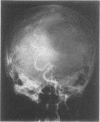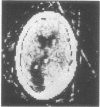Abstract
Three patients presented with sudden visual impairment followed by agitated delirium one to three days later. Examination revealed marked agitation, dementia, and loss of vision. Computerised axial tomography demonstrated temporo-occipital infarctions. All recovered from the agitated state in four days to two months, but their visual impairment and dementia persisted one to four years later.
Full text
PDF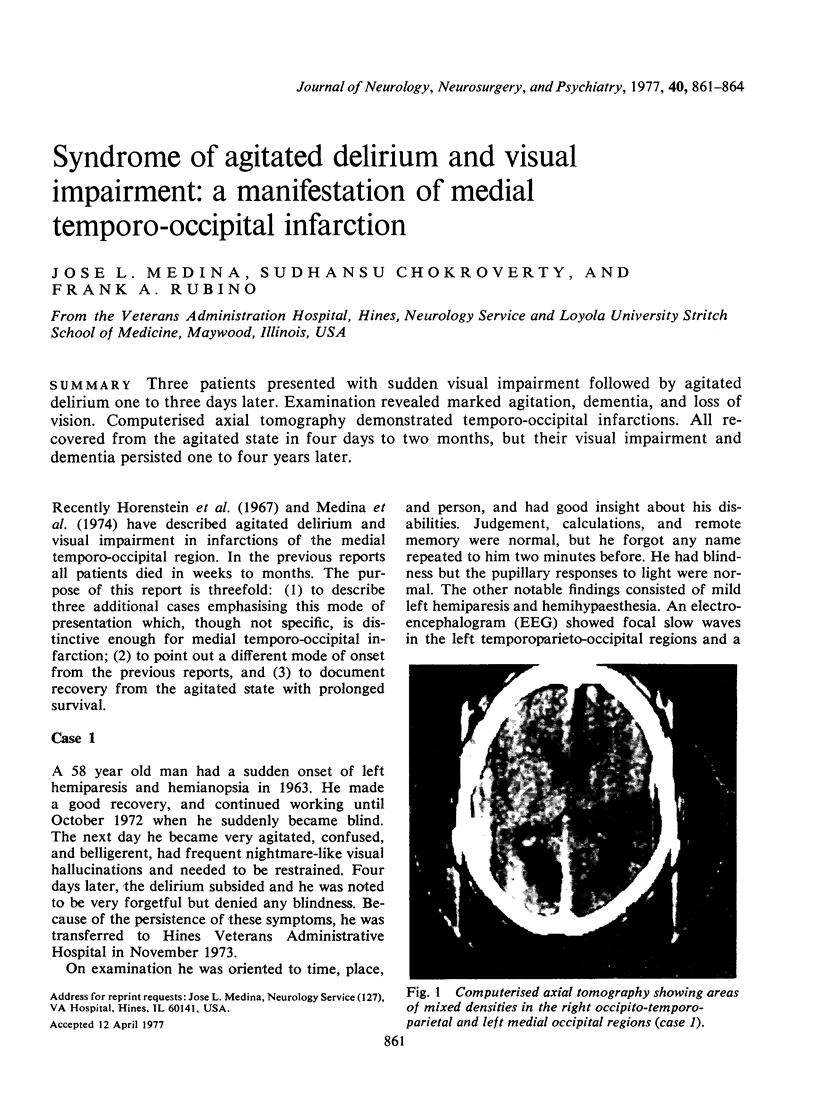
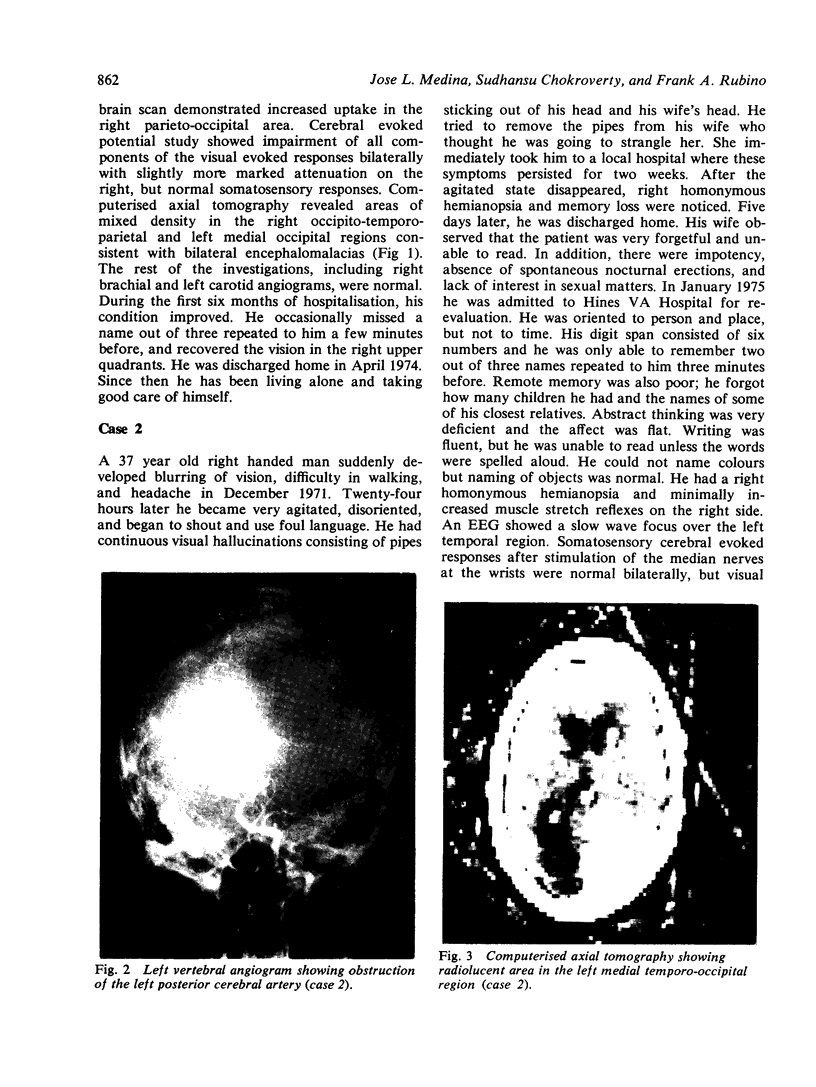
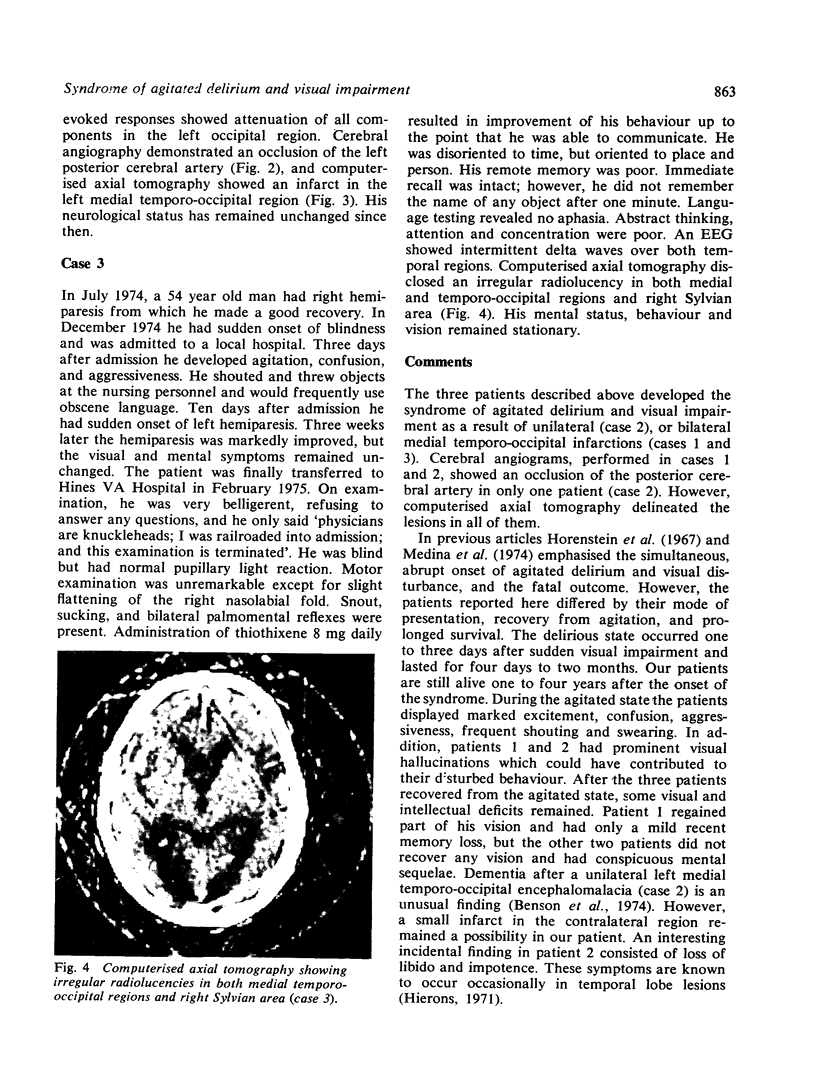
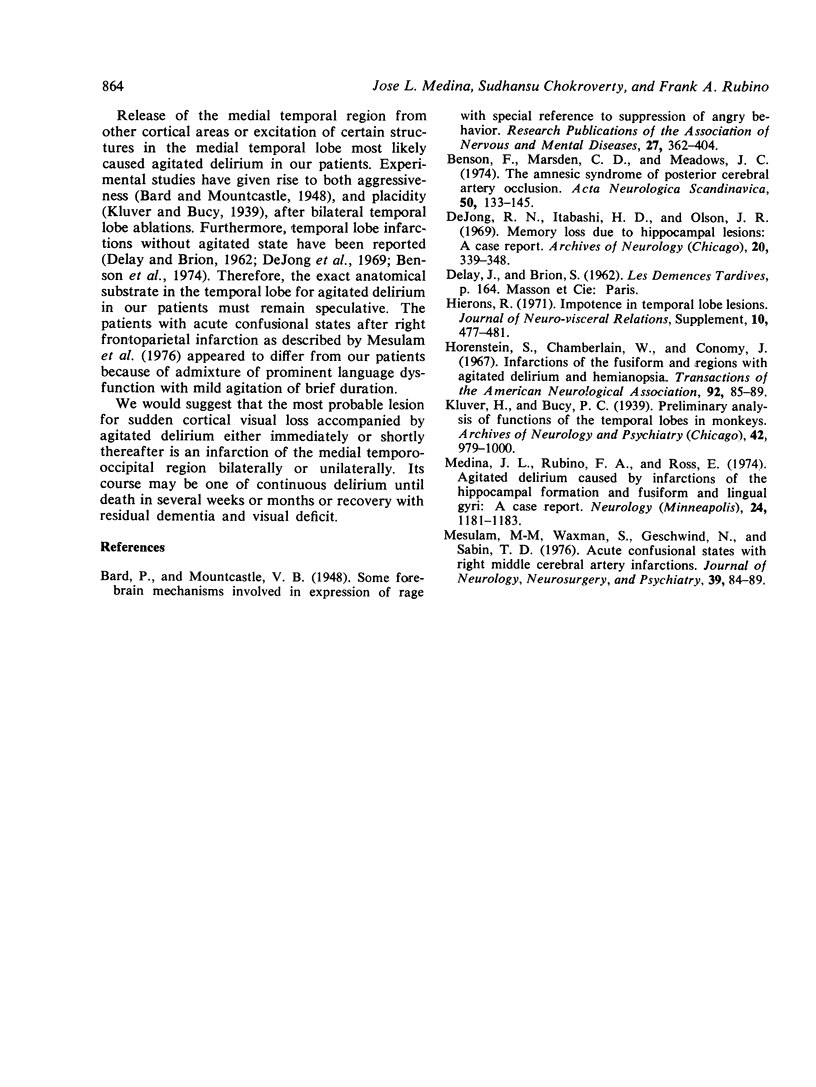
Images in this article
Selected References
These references are in PubMed. This may not be the complete list of references from this article.
- Benson D. F., Marsden C. D., Meadows J. C. The amnesic syndrome of posterior cerebral artery occlusion. Acta Neurol Scand. 1974;50(2):133–145. doi: 10.1111/j.1600-0404.1974.tb02767.x. [DOI] [PubMed] [Google Scholar]
- DeJong R. N., Itabashi H. H., Olson J. R. Memory loss due to hippocampal lesions. Report of a case. Arch Neurol. 1969 Apr;20(4):339–348. doi: 10.1001/archneur.1969.00480100015001. [DOI] [PubMed] [Google Scholar]
- Horenstein S., Chamberlin W., Conomy J. Infarction of the fusiform and calcarine regions: agitated delirium and hemianopia. Trans Am Neurol Assoc. 1967;92:85–89. [PubMed] [Google Scholar]
- Medina J. L., Rubino F. A., Ross E. Agitated delirium caused by infarctions of the hippocampal formation and fusiform and lingual gyri: a case report. Neurology. 1974 Dec;24(12):1181–1183. doi: 10.1212/wnl.24.12.1181. [DOI] [PubMed] [Google Scholar]
- Mesulam M. M., Waxman S. G., Geschwind N., Sabin T. D. Acute confusional states with right middle cerebral artery infarctions. J Neurol Neurosurg Psychiatry. 1976 Jan;39(1):84–89. doi: 10.1136/jnnp.39.1.84. [DOI] [PMC free article] [PubMed] [Google Scholar]





